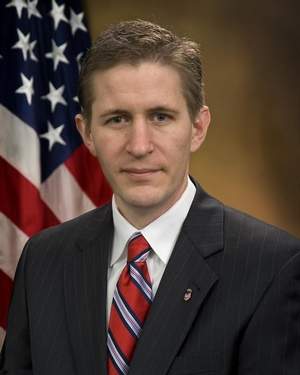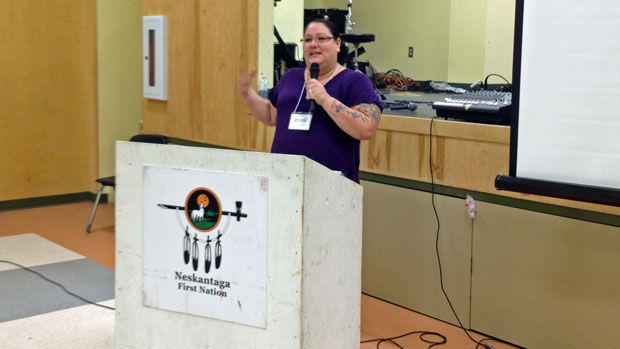Dec. 1, 2013
Written by Dave Kolpack
Associated Press
FARGO — U.S. Sen. Heidi Heitkamp has introduced legislation meant to crack down on sex trafficking, which experts fear is on the rise in her home state of North Dakota because of the large influx of men coming to work in the state’s western oil patch.

Heitkamp, a Democrat, introduced the bill this week on the same day that federal prosecutors in North Dakota unsealed charges against 11 Dickinson-area men who were arrested in a child prostitution sting. The men thought they were buying sex with teenage girls, prosecutors allege.
“Just looking at the recent arrests would tell you that North Dakota could be ground zero for this type of behavior,” Heitkamp told The Associated Press on Friday.
It’s a trend that has alarmed federal prosecutors in North and South Dakota. A man on the Fort Berthold Indian Reservation in North Dakota recently was sentenced to 45 years in prison for coercing women into prostitution in oilfield communities. Two men in South Dakota have received life sentences for human trafficking cases in Sioux Falls.
“With the increase in population, there’s the risk of organized crime,” said Timothy Purdon, the U.S. attorney from North Dakota. “We’re certainly very aware of the threat potentially posed by human trafficking in the oil patch.”
Heitkamp said the bill, which focuses on all forms of human trafficking, would encourage law enforcement officers and the courts to treat minors who are sold for sex as victims, not as criminals. She said it includes a safe harbor provision to encourage them to come forward.
“These are very difficult issues to expose and research,” Heitkamp said. “It’s very difficult to get the victims to speak. They’ve been conditioned not to speak. They’ve been terrorized.”
Heitkamp said estimates show that more than 100,000 minors in the U.S. are forced into sex trafficking every year. Children are 13 years old, on average, when they are forced to become prostitutes, she said.
Native American girls and women often are targets of human traffickers, Heitkamp and Purdon said.
“You have a vulnerable population in young girls on the reservation,” Purdon said. “My concern is that they could be exploited if organized human trafficking operations gain an inroad here.”
Purdon said the 11 arrests in Dickinson and three arrests in a Williston sting about a month ago “stand for the idea that there is the demand out there as well.” Trying to stop the supply is more difficult, he said.
Going after the johns could help deter other future buyers, Heitkamp said.
“Nobody wants to see their name in the paper relative to sex trafficking,” she said.

Brendan Johnson, the U.S. attorney for South Dakota, recently argued and won a case in front of the 8th U.S. Circuit of Appeals that reinstated convictions against two men who previously were acquitted of commercial sex trafficking. The men had been arrested in a sting operation known as “Operation Crossing Guard.”
South Dakota has a couple of unique sex trafficking stages with the annual Sturgis Motorcycle Rally and a pheasant hunting season that attracts hundreds of outdoors enthusiasts from around the country.
“Anytime you have large groups of men gathering, you’re going to have the potential for sex trafficking problems,” Johnson said. “That’s just the reality.”


